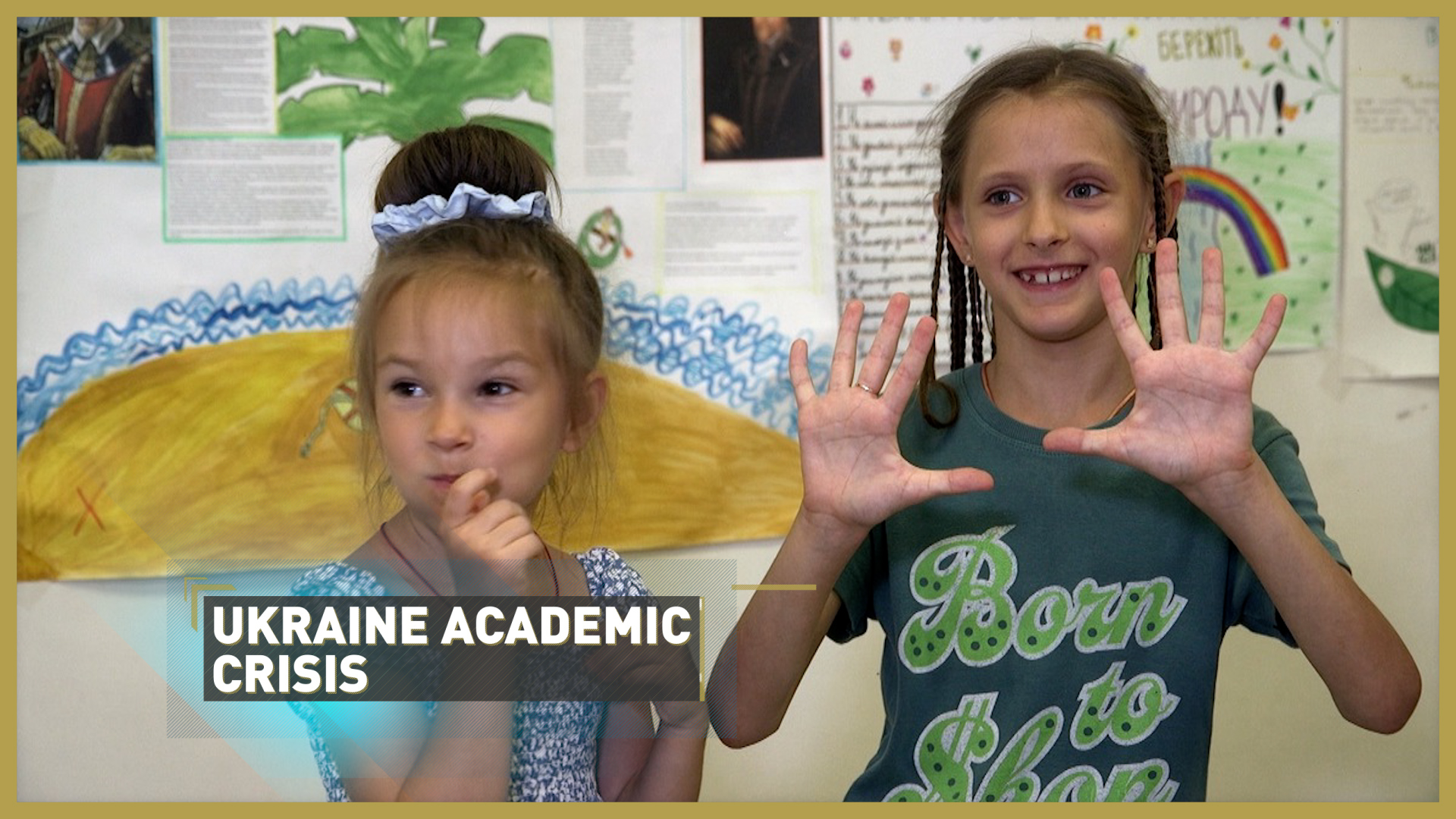02:28

Seven - year-old Arena eagerly runs up the entrance steps to Odesa's European Lyceum School, heading straight for a stack of math books in the foyer.
"Math is my favorite subject. I miss my math teacher and I miss my friends. I've been bored," she says.
Arena has been out of school since February 23 - a day before the start of the current Russia-Ukraine conflict. She's been remote learning - a weak substitute for the classroom experience and playing "war tag" with friends at recess.
On September 1, Ukraine re-opens a fraction of its schools to the country's estimated 3.6 million school age children. Millions of young people are displaced, thousands have been killed and an unspecified number of schools were damaged or destroyed in
shelling.
Few children remain in active fighting zones; in-person learning is a dangerous impossibility in those areas.
An estimated one hundred thousand first through 12th graders live in Odesa. When the academic year officially kicks off on September 1, only ten thousand slots are available for in-person education. Parents of only 3,500 young people are willing to send their kids back to school.
Irina, Arena's mother says: "Arena's father is in the army and I work. Going back to school gives her the opportunity to be in contact with her teachers and other children."

Arena demonstrates that her keenness to go back to school is 10 out of 10. CGTN Europe
Arena demonstrates that her keenness to go back to school is 10 out of 10. CGTN Europe
Schools re-opening for physical attendance are subject to strict protocols. Underground bomb shelters are a prerequisite and teachers and staff must be trained in evacuation and first aid procedures.
At Lyceum, the entire bottom floor serves as an underground bomb shelter and windows are sandbagged to absorb blast shocks.
Some staff members have trained in psychological counseling to help kids cope with the stark realities they're facing: death, displacement and destruction.
"Every day she asks me: 'Where is my Dad?" says Irina.
When will he come home?'" Irina shares, tears springing to her eyes. "I tell her the truth…I don't know."
Olena Buinevich, Head of the education department in Odesa says: "We hope it won't ever happen but if shelling in Odesa increases dramatically or if street fighting erupts between the sides, of course we'll close schools."
Ukraine, with a nearly 100 percent literacy rate, prides itself on education and learning. A 2020 European Neighborhood Policy poll reveals 97 percent of 20-24-year-olds have graduated high school.
For Arena it's all about math class and peers. Listing a stream of friends' names, she holds up both hands, palms forward, fingers extended: "This is how excited I am to goback to school."

